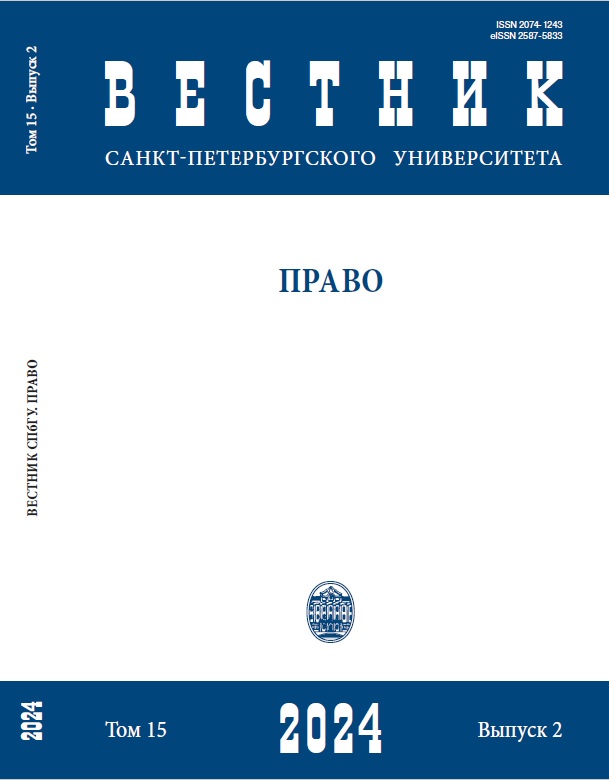Judge requirements and ethical issues in the Cooperation Council for the Arab States of the Gulf
DOI:
https://doi.org/10.21638/spbu14.2024.212Аннотация
Judge requirements and ethical issues in the Cooperation Council for the Arab States of the Gulf
Ключевые слова:
Саудовская Аравия, ОАЭ, Катар, кади, исламское право, шариат, требования к судьям, судейская этика, ССАГПЗ
Скачивания
Библиографические ссылки
Загрузки
Опубликован
Как цитировать
Выпуск
Раздел
Лицензия
Статьи журнала «Вестник Санкт-Петербургского университета. Право» находятся в открытом доступе и распространяются в соответствии с условиями Лицензионного Договора с Санкт-Петербургским государственным университетом, который бесплатно предоставляет авторам неограниченное распространение и самостоятельное архивирование.






